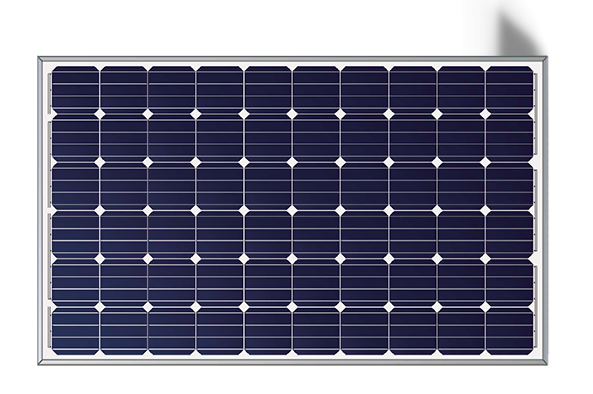Back in 2010 Japan was riding high in the solar industry as Japanese solar companies were the top solar panel producers in the world. Japan was expected to stay in the number one position for the foreseeable future as the country led the pack in innovation as well as panel quality.
In addition to making great solar panels, Japan was also committed to ‘putting its money where its mouth was’. This led to the country implementing solar power at an incredible pace. Issues with earthquakes and nuclear accidents only strengthened Japan’s commitment to solar and made the country the world’s largest producer of solar electricity in 1995.
Things change fast in the solar world, however. In this case the change involved Chinese solar companies producing a large amount of well-made solar panels at comparably low prices. This allowed China to begin a domination of the solar industry that continues to this day.
There are still good reasons to purchase panels from Japanese solar panel manufacturers, however. The main reason is that these companies are still making some of the best solar panels on the market. One of the main reasons they are so good at making solar panels is that they have been doing it for a long time.

Japanese Solar Panel Manufacturers: Experience Counts
Many people think of solar power as a relatively new technology. The truth is that solar panels have become more affordable in the past couple of decades, but the history of solar panels goes back over a century.
Many Japanese solar panel companies have been around for a half century or more. Being around for that amount of time has allowed these companies to get very good at what they do. They have had time to grow their expertise and eliminate manufacturing inefficiencies.
These are some of the Japanese solar companies with a long history:
- Mitsubishi Solar has been developing solar cells since 1974. The Mitsubishi Electric Group itself has been around even longer and just celebrated its 100th anniversary in 2021.
- Kaneka started studying amorphous silicon solar technology in 1980. In 2020, Kaneka’s see-through photovoltaic modules were added to the Japan National Stadium.
- Kyocera Solar has been producing solar panels since 1975. In 2021, Kyocera completed restoration work on a 13.7-MW floating solar park in Japan.
- Sharp Solar has been harnessing the power of the sun since 1959 (that’s over 60 years!). Sharp Corporation just celebrated its 110th anniversary in 2022.
As surprising as it might be to those who think that solar power is a brand new technology, these four companies alone have 200 years of solar panel experience!
This head start in the solar industry is one of the main reasons that Japan is a leader internationally. Another thing that Japan’s solar industry has going for it is the willingness of companies with no solar industry experience to give solar manufacturing a try.
No Solar Experience, No Problem!
Japanese corporate giants with no previous experience in the solar industry have shown that they are willing to get involved in solar manufacturing. This provides an opportunity for these companies to put their efficient manufacturing processes to work expanding our capacity to create clean, renewable energy. This openness to getting involved in the solar business can be seen in electronics giants like Sharp and Sanyo, but also with automotive giant Honda.
In 2006 Honda announced the launch of Honda Soltec and in 2011 the company announced that it would be releasing a thin film solar cell with a conversion efficiency of over 13%. Unfortunately Honda stopped manufacturing solar panels in 2014, but the company provided a valuable contribution to innovation in the industry. Honda developed a panel with a unique combination of copper, indium, gallium, and selenium (CIGS for short).
Another reason that Japanese solar companies are likely to remain competitive on the world stage is their willingness to cooperate. When competition from China and other solar manufacturing countries became an issue, it was announced that approximately 20 Japanese solar manufacturers would form an alliance in order to win bids for international solar projects.
The Japanese government also played an active role in helping these companies win foreign contracts. This willingness to cooperate or “play nice” might be an important element of Japan’s future success in solar manufacturing.
The Japanese Solar Industry: Challenges and Opportunities
This is not to say that Japanese solar manufacturers are not facing significant challenges. Despite the cooperation of Japanese solar firms, Chinese solar companies represent some stiff competition and have taken over much of the solar industry.
One of the reasons for this is the relatively high cost of producing solar panels in Japan compared to other Asian countries. IMS Research has noted that the rise of low cost Chinese solar panels has taken away from Japan’s market share in the PV industry.
Though Japan may have trouble competing on cost with Chinese solar companies, it could have better luck in competing against more expensive high efficiency solar panels. In September 2022, Panasonic unveiled the all-black compact EverVolt® solar module. These panels have efficiency ratings of around 22% and feature half-cut cells and heterojunction technology with gapless connections.
The key for Panasonic and other Japanese solar companies will be justifying premium prices for their high quality solar modules. Companies in Japan are not alone in this fight. As solar panels have become commoditized the panels of different companies have become largely interchangeable.
Therefore, if a company doesn’t want to keep cutting its prices in a “race to the bottom”, it has to come up with some good reasons for why people should be willing to pay more for its product.
As Eiji Hayashida, CEO of a large Japanese steel company points out, “Japanese companies are still basically hardware-focused, when innovation now means services, solutions, software, business models – a whole ecosystem”.
This is an important point not just for Japanese solar companies, but for solar energy companies all over the world.
